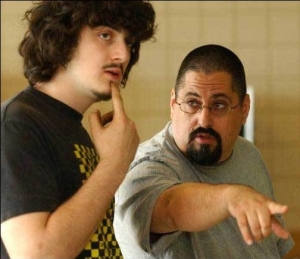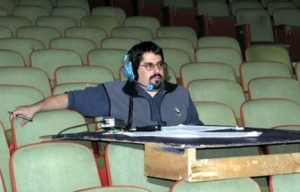Theatre is a holistic, organic, art form. It is the only art form I know which uses all the senses as well as being interactive, collaborative and ephemeral. These factors contribute to two concepts which form my artistic vision.
Theatre Promotes Change
To begin, theatre is not merely entertaining. It should always be, and I believe cannot help but always be, an agent of change, either in society or in the individual viewer. In fact, the path of change supersedes the quest for entertainment.
 No matter the text, even in scripts typically deemed “youth theatre,” (a name I detest) the experience the audience partakes in should leave them altered. This may come about in several ways. First, it may change knowledge. Audiences may learn something new about the world they did not know before. This is a type of education with the theatrical experience being the teacher.
No matter the text, even in scripts typically deemed “youth theatre,” (a name I detest) the experience the audience partakes in should leave them altered. This may come about in several ways. First, it may change knowledge. Audiences may learn something new about the world they did not know before. This is a type of education with the theatrical experience being the teacher.
Second, the experience may foster a change in viewpoint. The text may present a direction of thinking the audience has not anticipated or which they may not share with the experience. When a single person is affected, this can result in a personal epiphany, but when shared with a group, cultural change occurs. We alter our society. Sometimes this is jarring, painful, definitely not “entertaining.”
Finally, there is a meta-theatrical change that can occur. Usually this is an individual experience. A person, watching a performance may come to realize that they can be a performer as well. Collaborating in the artistic form as an audience member instills confidence and desire to take the next step to the stage. Every one of us in the theatrical world got here because we saw someone else do it first and found ourselves compelled to give it a try.
Each of these alterations demands a responsibility from production team, director and performers. We are obligated, as change agents, to treat our audiences with a level of respect and care. As I tell my students often, there is someone in the audience tonight who you will change in some way, forever. You owe it to them to give your best, most honest, work.
Audience Inclusion Fosters Collaboration
Additionally, the theatrical experience should be immersive. The methexis of the theatrical experience demands that we are all in the same element. That is, Director, Actors, Designers and Audience, should all be incorporated into the world of the text as much as possible. Only by doing this, can the audience be an equal partner in the collaborative process of creating the meaning of the experience.
Starting first with the script, I attempt, in every production, even those which lend themselves to a more presentational form, to bring the audience into the  world on stage. Sometimes this is done with light or sound, sometimes with staging, sometimes with interaction. Anything that interferes with this connection, blackouts during scene changes, curtain closures and the like, separates the audience from the rest of the collaborative team. The audience experience begins at the ticket booth and lasts continuously until the conversation in the car on the way home ends. It does not exist in fits and starts punctuated by scene changes, an intermission and a curtain call. Every effort must be made to create that immersive environment.
world on stage. Sometimes this is done with light or sound, sometimes with staging, sometimes with interaction. Anything that interferes with this connection, blackouts during scene changes, curtain closures and the like, separates the audience from the rest of the collaborative team. The audience experience begins at the ticket booth and lasts continuously until the conversation in the car on the way home ends. It does not exist in fits and starts punctuated by scene changes, an intermission and a curtain call. Every effort must be made to create that immersive environment.
This vision leads inevitably to a theatrical ethic, a contract between artists and audience that is not found in any other form. Thinking this way, inculcating this vision in others, requires from them their utmost level of performance and will ultimately result in a better experience for all parts of the collaboration.
